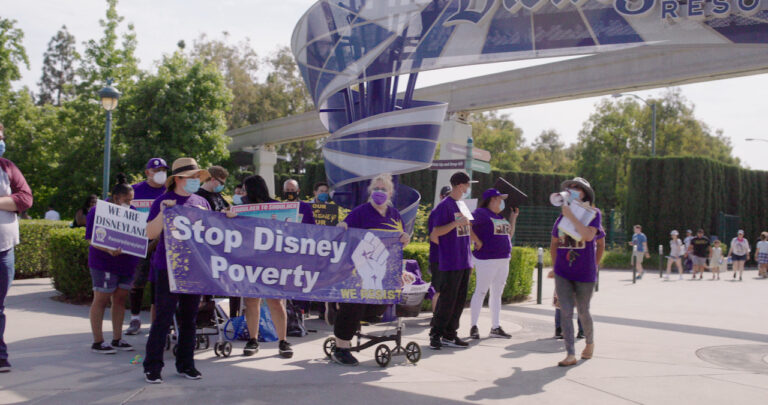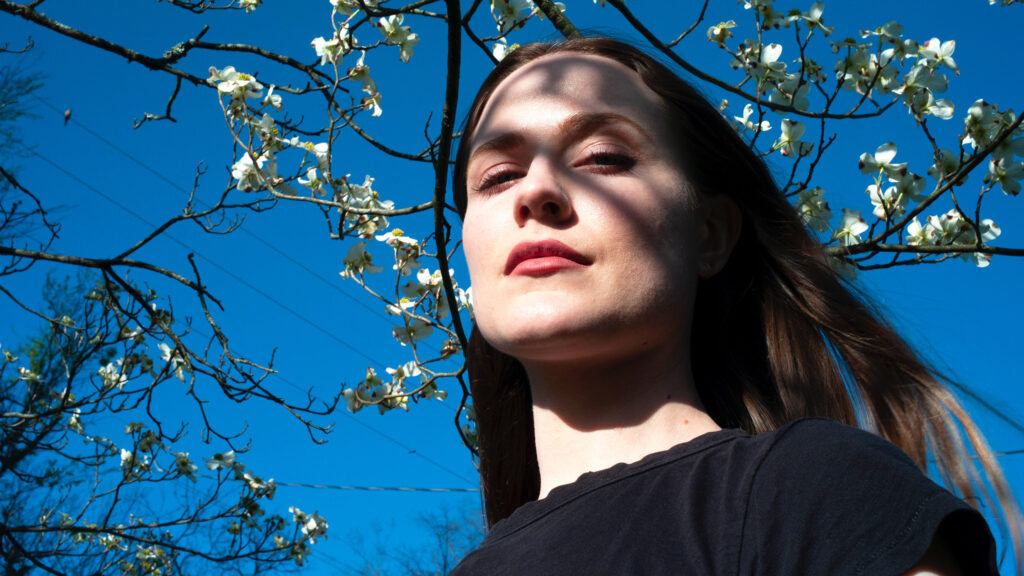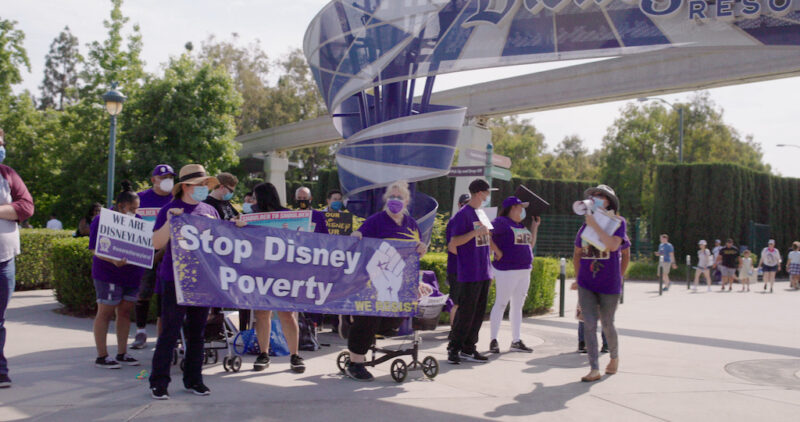PARK CITY, UTAH — January, 12, 2022 – The nonprofit Sundance Institute announced today the addition of two world premiere feature films for the 2022 Sundance Film Festival. The Festival will take place online at Festival.Sundance.org; on The Spaceship, a bespoke immersive platform; and in person at seven Satellite Screens venues around the country during the Festival’s second weekend. The Festival takes place January 20–30, 2022; ticket packages are currently on sale; Single Film Ticket sale begins on January 13 at 10 a.m. MT (January 12 at 10 a.m. MT for membership pre-sale).
The Sundance Film Festival is the flagship public program of Sundance Institute. Throughout the year, the majority of the Institute’s resources support independent artists around the world as they make and develop new work through access to Labs, direct grants, fellowships, residencies, and other strategic and tactical support.
Added to the program in the Special Screenings section are The American Dream and Other Fairy Tales directed by Abigail E. Disney and Kathleen Hughes and Phoenix Rising directed by Amy Berg.
“We’re so pleased to welcome these two dynamic films into our program,” said Kim Yutani, the Festival’s Director of Programming. “These bold, compelling, provocative documentaries tell indelible stories each from a searing first person perspective that we know will spark critical dialogue.”
Today’s additions add to the 2022 Festival slate, where 83 feature-length films will screen representing 28 countries, and 39 of 94 (41%) feature film directors are first-time feature filmmakers. Fifteen of the feature films and projects were supported by Sundance Institute in development through direct granting or residency labs.
Seventy-eight, or 91%, of the Festival’s feature films will be world premieres. Director demographics are available in an editor’s note below.
The latest additions to the 2022 Sundance Film Festival are:
SPECIAL SCREENINGS
The American Dream and Other Fairy Tales / U.S.A. (Directors: Abigail E. Disney, Kathleen Hughes, Producers: Abigail E. Disney, Kathleen Hughes, Aideen Kane) — Abigail Disney looks at America’s dysfunctional and unequal economy and asks why the American Dream has worked for the wealthy, yet is a nightmare for people born with less. As a way to imagine a more equitable future, Disney uses her family’s story to explore how this systemic injustice took hold. World Premiere.

Phoenix Rising / U.S.A. (Director: Amy Berg, Producers: Kirsten Sheridan, Nancy Abraham, Lisa Heller) — Actress and activist Evan Rachel Wood takes her experience as a survivor of domestic violence to pursue justice, heal generational trauma, and reclaim her story in a culture that instinctively blames women. The film intimately charts her journey as she moves toward naming her infamous abuser for the first time. World Premiere. Phoenix Rising is a two part documentary, part one will be premiering.

EDITOR NOTE: DIRECTOR DEMOGRAPHICS
The data we are sharing reflects information provided directly by the artists. Some artists chose not to self-identify in all data areas.
U.S. COMPETITION:
Dramatic: 60% or 6 of the 10 directors in this year’s U.S. Dramatic Competition identify as women; 50% or 5 of the 10 identify as people of color.
Documentary: 77% or 10 of the 13 directors in this year’s U.S. Documentary Competition identify as women; 30% or 4 of the 13 identify as people of color; 7% or 1 of the 13 identify as LGBTQ+; 23% or 3 of the 13 identify as people with disabilities.
WORLD COMPETITION:
Dramatic: 45% or 5 of the 11 directors in the World Dramatic Competition identify as women; 45% or 5 of the 11 identify as people of color; 9% or 1 out of 11 directors identify as LGBTQ+
Documentary: 45% or 5 of the 11 directors in the World Documentary Competition identify as women; 36% or 4 of the 11 as people of color.
FEATURE FILM SUBMISSIONS: Of the 3,762 feature film submissions, 1,665 were from the U.S. and 2,121 were international; 1,070 (28%) were directed by one or more filmmakers who identify as women; 52 (1%) were directed by one or more filmmakers who identify as non-binary individuals; 1,611 (43%) were directed by one or more filmmakers who identify as people of color; 413 (11%) were directed by one or more filmmakers who identify as LGBTQ+; 158 (4%) were directed by one or more filmmakers who identify as people with disabilities
ALL FEATURES: Of the 83 feature films, 46 (55%) were directed by one or more filmmakers identify as women; 1 (1%) was directed by one or more filmmakers who identify as non-binary individuals; 29 (35%) were directed by one or more filmmakers who identify as people of color; 8 (10%) by one or more filmmakers who identify as LGBTQ+; 3 (4%) by one or more filmmakers who identify as people with disabilities.
NEW FRONTIER: Of the 29 lead artists across the 15-project section, 7, or 24%, identify as women; 3, or 10%, identify as non-binary; 14, or 48%, identify as people of color; 6, or 21%, identify as LGBTQ+; 1, or 3% identify as people with disabilities.
INDIE EPISODIC: Of the 8 directors across the 6-project section, 1, or 12%, identifies as women; 3, or 37%, of 8 directors identify as people of color; 1, or 12%, identifies as LGBTQ+.
ALL SHORTS: Of the 59 short films announced who opted to provide identity information, 26 (44%) were directed by one or more filmmakers who identify as women; 4 (7%) were directed by one or more filmmakers who identify as non-binary individuals; 41 (69%) were directed by one or more filmmakers who identify as people of color; 12 (20%) by one or more filmmakers who identify as LGBTQ+; 2 (3%) were directed by one or more filmmakers who identify as people with disabilities.







